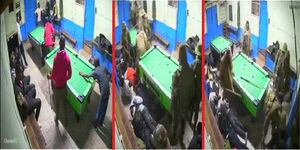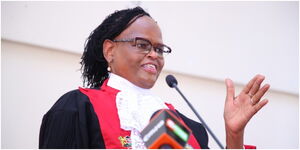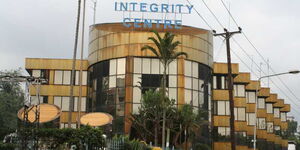President William Ruto has been on a clarion call for the youth to engage in research and innovation that develops solutions in a bid to solve challenges facing society on a local and international capacity.
In particular, during his visit to Jaramogi Oginga Odinga University of Science and Technology (JOOUST) on Saturday, January 14, where he commissioned the institution's Blue Economy Research Hub, the President affirmed that technology advancement would enhance the country's competitiveness on a global scale.
One of the projects that the Head of State lauded is the sericulture project.
Sericulture is a venture which involves the production of raw silk by rearing silkworms to manufacture silk products.
JOOUST's project, in conjunction with Silk Origin Limited, has been able to plant 400,000 trees in Asiego, Siaya and Bondo.
Process
The sericulture process consists of three key steps for the production of silk; moriculture, silkworm rearing and silk reeling.
Moriculture deals with the cultivation of mulberry leaves while silkworm rearing promotes the growth of domestic silkworms.
Silk rearing, on the other hand, involves the extraction of silk filaments from the silkworm cocoons.
The final process includes weaving the silk filaments to form a thread.
Silkworms, however, require an intensive process as it has to be fed every three or four hours.
Notwithstanding, Kenya's climate is ideal for the growth of Mulberry trees and the rearing of silkworms.
Importance
Experts indicate that the project points out the possibilities for the youth as the government faces competing demands for finite resources.
University students can also leverage demand-driven research and expertise in a bid to enhance monetization in the private sector.
Mulberry leaves and berries offer a strong nutritional value with key minerals and vitamins and also consists of medicinal benefits including lowering blood sugar levels.
Sericulture also offers farmers significant potential for income generation and job creation as it is a pathway for the improvement of the country's Gross Domestic Product (GDP).
The project will also provide a wide array of income streams through numerous by-products such as sutures, serums and oils, teas, jams, wine and cattle fodder.












